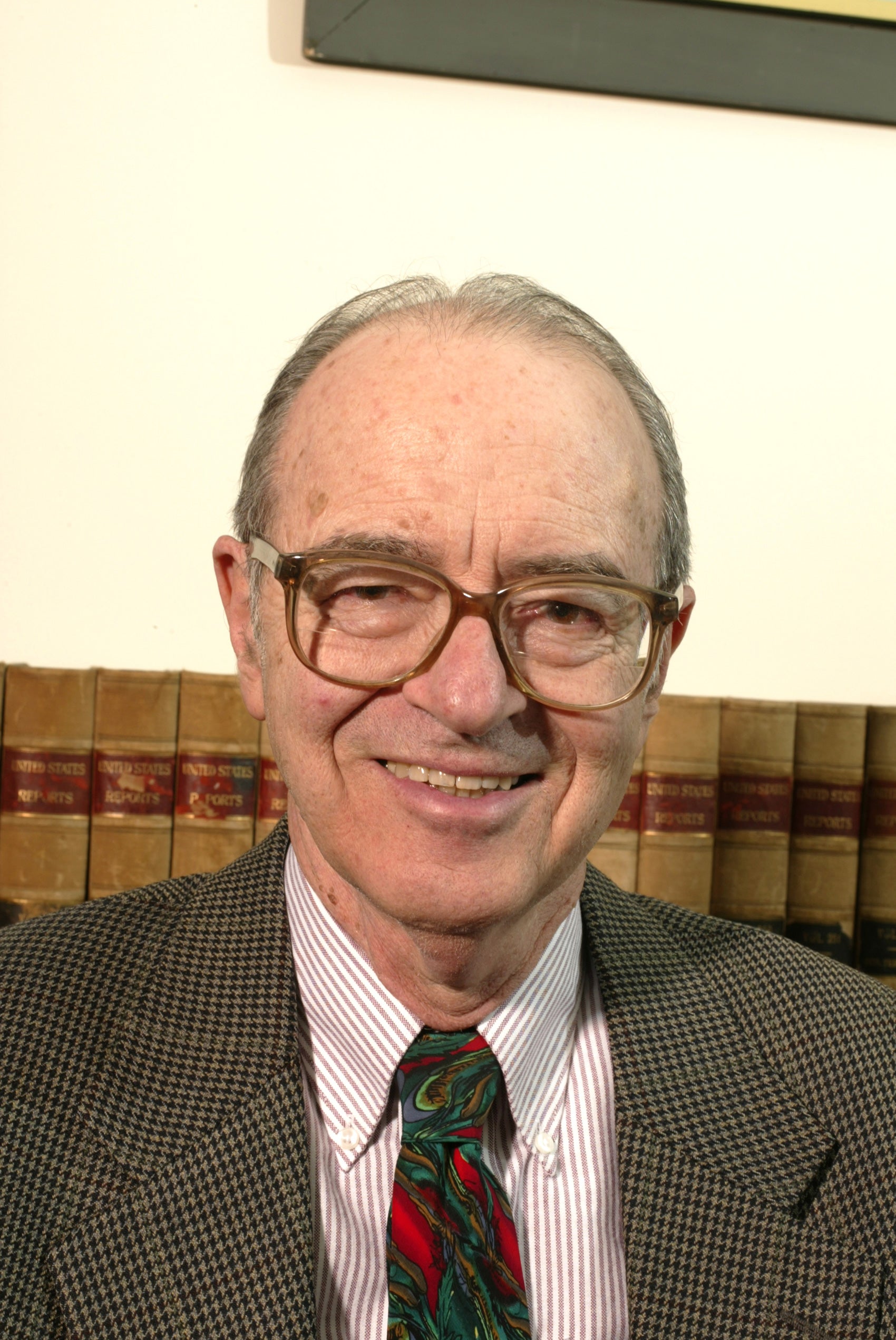In a Wall Street Journal article titled “Has the Supreme Court Already Had a Hispanic Justice?,” HLS Professor Andy Kaufman ’54, author of “Cardozo,” a biography of Supreme Court Justice Cardozo, shared his research concerning Justice Cardozo’s ethnic heritage with WSJ Reporter Ashby Jones.
Lo just a few short hours ago, we blogged a Washington Post story about interest groups “gently” lobbying the White House to appoint a Hispanic to replace retiring Justice David Souter.
In response to our post, a reader named “anonny” posted the following comment:
What about the great one, Justice Cardozo? Wasn’t he a [Portuguese] Jew? (I realize that he’s counted among the Court’s few Jewish members, but for the sake of accuracy, we should call her the first female Hispanic justice . . . both of which would be a welcome thing.)
Huh. We’d never heard that the great Justice Cardozo had Portuguese ancestry. To clear things up, we dropped a line to Harvard Law professor Andrew Kaufman, author of a biography called, simply, “Cardozo.”
Kaufman kindly interrupted his day of grading exams to shoot us a note. We’re not sure if it answers, once and for all, whether Cardozo can be categorized as Hispanic, but it certainly gives us a fuller picture of the man who some call the best writer ever to sit on the Court. (He penned this gem, for instance: “Freedom of expression is the matrix, the indispensable condition, of nearly every other form of freedom.”)
Dear Mr. Jones, . . .
The Cardozos and the Nathans [Cardozo’s maternal ancestors] came to the American colonies in the eighteenth century via Holland and England. The family legend is that the Cardozos came from Portugal but there is no firm documentation about the particulars. The family tree is filled with names like Seixas, Mendes, Gomez, Riveiro, Navarro, Peixotto, and Pachecho, indicating their heritage as Sephardic Jews from the Iberian Peninsula.
I have had many long conversations with a variety of newspaper people about whether Cardozo was the first whatever-name-you-want-to-use. It’s all in the context. Many Spanish would deny that Portuguese are Hispanic. Many Jews do not regard themselves as ethnically part of the European country they came from. Many Sephardic Jews probably do regard themselves as ethnically Spanish and Portuguese and Cardozo’s synagogue was and still is known as the Spanish and Portuguese Synagogue. Many Spanish and Portuguese probably did not regard Jews as part of their culture, and I can understand that many Americans of Mexican heritage would not so regard Cardozo.
By the way, a number of years ago the Portuguese consul in Boston enlisted my help in trying to get Cardozo on an American stamp as part of a Portuguese-American celebration. And more by the way, just last week, I was the speaker at the farewell dinner for the current Portuguese consul in Boston. She suffered an attack of migraine in a bookstore and when she opened her eyes, she found herself staring at a book called Cardozo, recognized it as a Portuguese name, and asked me to speak. The name Cardozo still resonates for Portuguese.
Sincerely,
Andrew Kaufman
